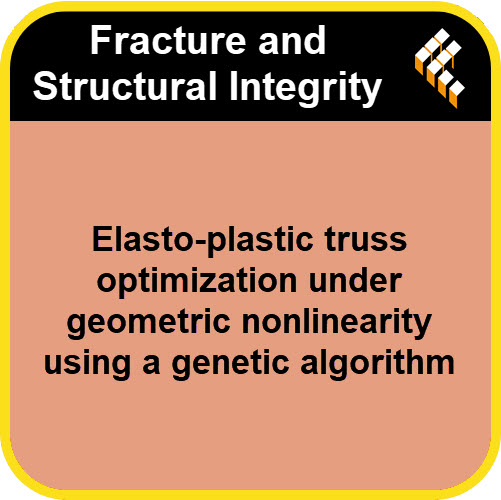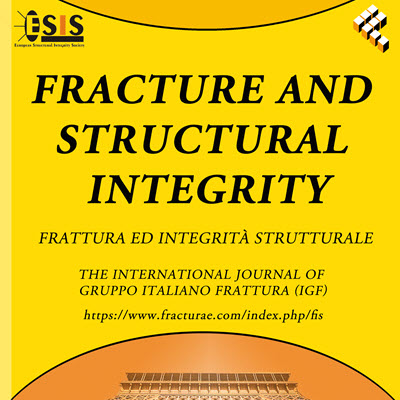Fracture and Structural Integrity: The Podcast
Stay at the cutting edge of fracture mechanics and structural integrity research with the official podcast of the Fracture and Structural Integrity journal. Join us for insightful interviews with top researchers, in-depth discussions of groundbreaking papers, and explorations of emerging trends in the field.
RSS Spotify YouTube Amazon Music
Elasto-plastic truss optimization under geometric nonlinearity using a genetic algorithm
2025-10-21
https://www.fracturae.com/index.php/fis/article/view/5643
This paper presents an advanced optimization methodology for truss structures, addressing both elasto-plastic design cases—where plastic deformations are controlled within predefined limits—and purely elastic scenarios, in which inelastic behavior is entirely prevented. Plastic deformations are characterized and quantified using the complementary strain energy of residual forces, providing a reliable measure of inelastic response. Additional design constraints related to load-bearing capacity and structural stability are incorporated through penalization terms, while the objective function focuses on minimizing structural weight. Serviceability restrictions are also applied to enhance the robustness of the design. Building on these considerations, the framework integrates material and geometric nonlinear finite element analysis (FEA) with a genetic algorithm (GA), enabling the automated determination of optimal cross-sectional areas for individual bar members within a predefined design domain. To further enhance safety, geometric imperfections are introduced through an integrated automatic strategy. The effectiveness of the proposed technique was validated using two benchmark numerical examples: a 37-bar planar truss and a 25-bar space truss, evaluated under multiple design scenarios. The results highlight the flexibility and reliability of the optimization framework, demonstrating substantial weight savings while fully meeting all structural performance criteria.
DownloadFiletype: MP3 - Size: 3 MB - Duration: 13:30m (320 kbps 44100 Hz)
Powered by Podcast Generator, an open source podcast publishing solution | Theme based on Bootstrap
